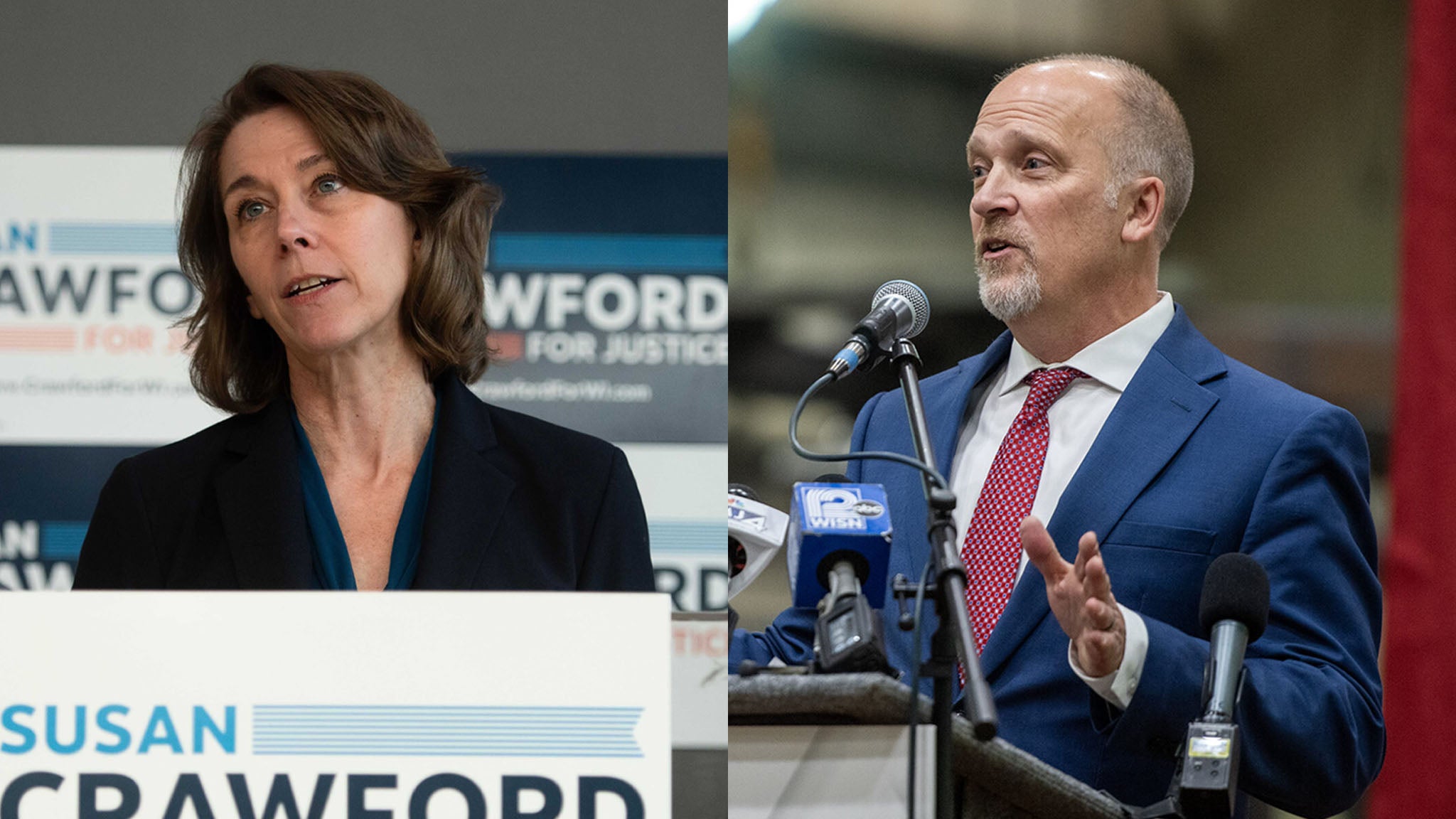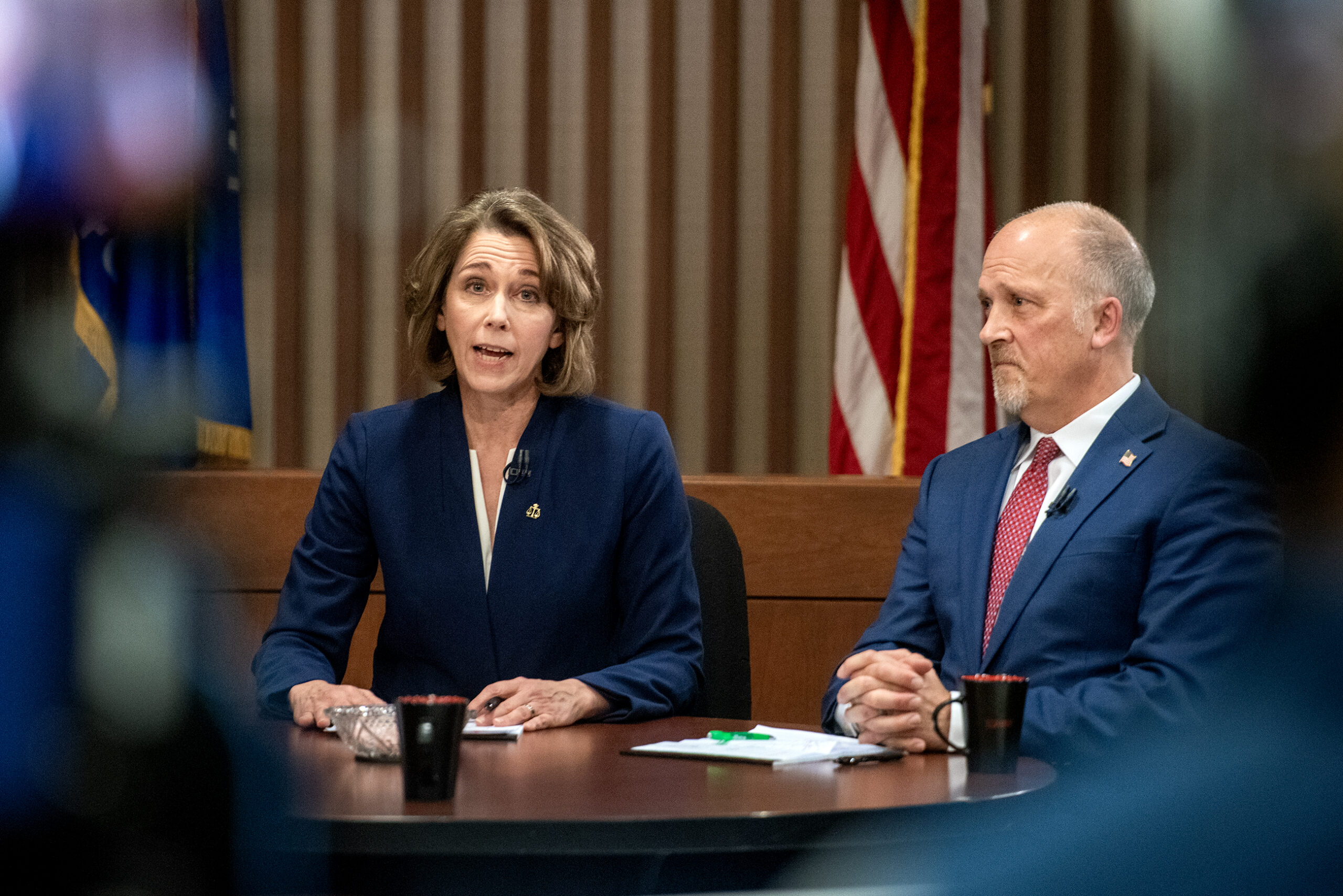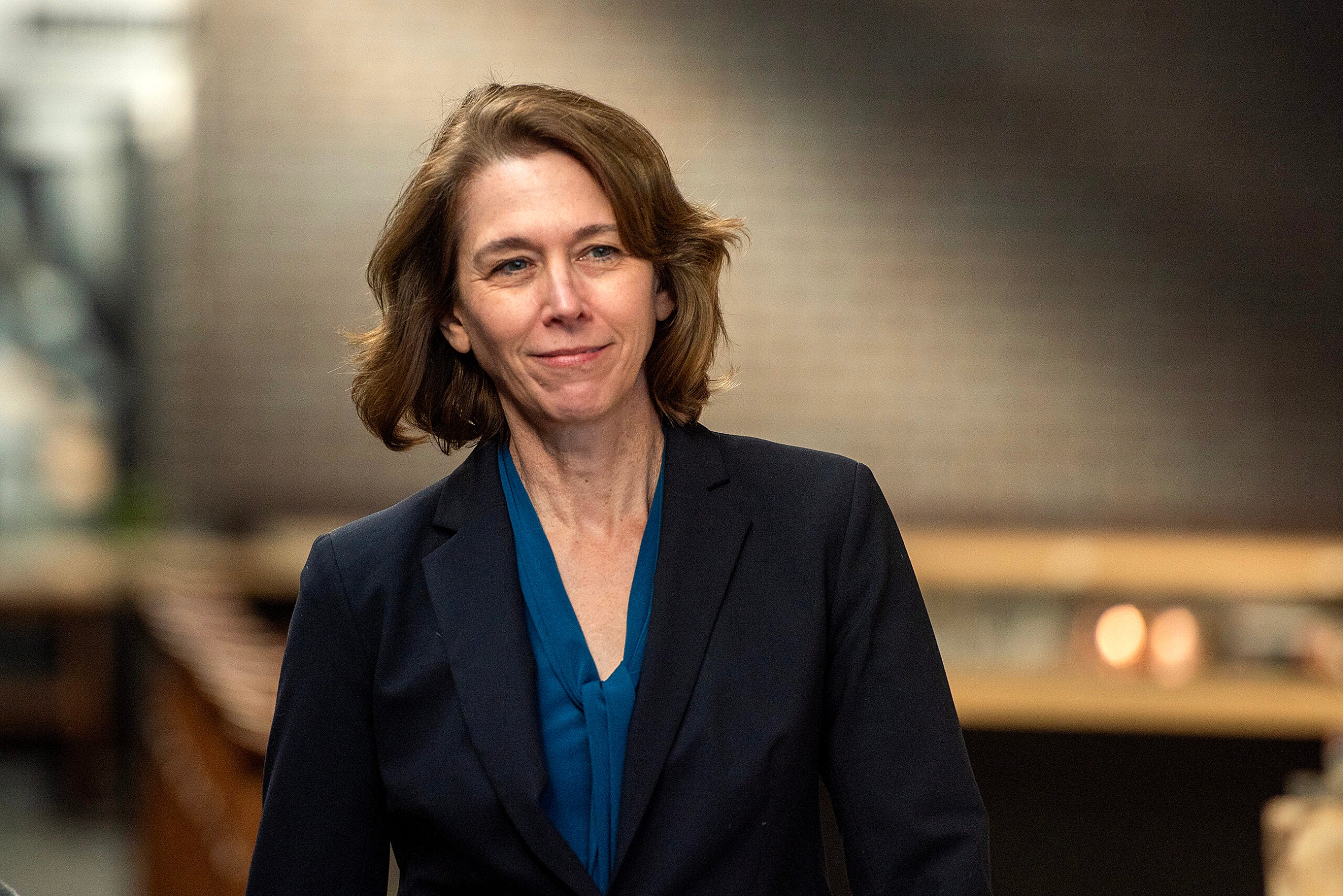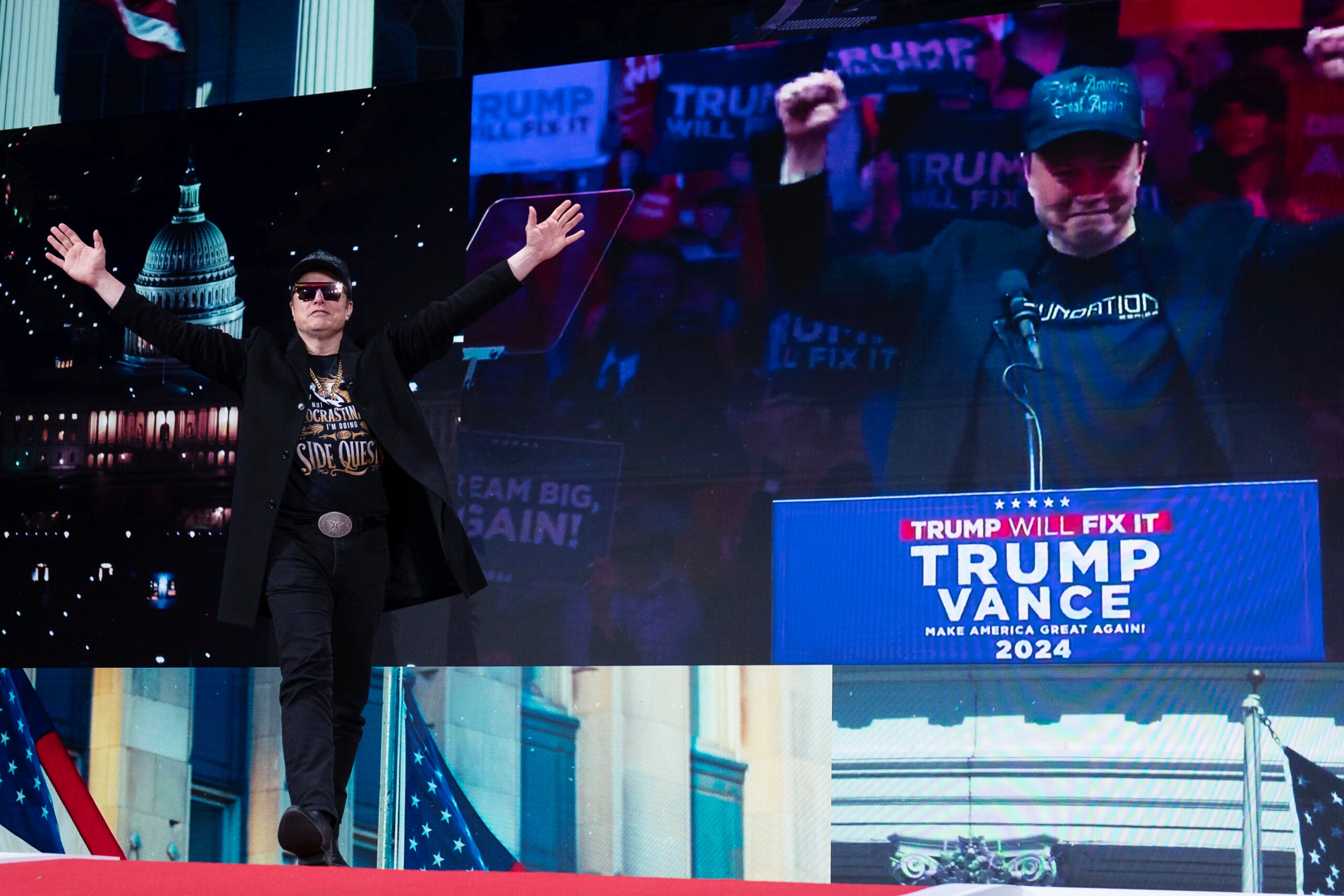With Wisconsin’s Supreme Court election on track to be the most expensive judiciary election in history, neither candidate has pledged to recuse themselves from hearing cases involving the political parties backing their races.
In an interview with WPR, liberal candidate Susan Crawford said that, much as she will not prejudge cases, she will also not prejudge the parties that bring them.
“I think it really comes down to, what kind of dispute is it? Who’s the other party in the case? What kind of legal issues are they raising? And only then make a decision about whether I could be fair and impartial in such a case or not,” she said at a campaign stop in western Wisconsin on Saturday.
Stay informed on the latest news
Sign up for WPR’s email newsletter.
That includes the state Democratic Party, she said, which has donated about $2 million in support of her campaign to date.
In a written statement, her conservative opponent, Brad Schimel, said he will set “personal history aside” when ruling, but he did not respond to questions about recusing from cases involving the Republican Party of Wisconsin.
“Before each case, I search my conscience and decide truthfully whether I can rule objectively. I will hold myself to that same process when I serve on the Wisconsin Supreme Court,” he said.
Schimel has received about $1.7 million from the state GOP.
Wisconsin law about recusal is broad. Wisconsin Supreme Court justices must recuse themselves from cases where they believe themselves to be unable to be objective or if they’ve made a commitment to rule in a certain way. But it’s up to justices to determine those conflicts themselves.
And there is no requirement for candidates to recuse from cases based on campaign contributions. In 2017, the court’s then-conservative majority rejected calls for the high court to adopt an ethics standard around recusing from cases involving campaign donors.
But as state court races have become more political, fueled by fights over high-stakes issues like abortion, big dollars from political interests are increasingly part of the equation.
That means that elected judges and justices face the prospect of ruling on lawsuits brought forward by parties who significantly supported — or opposed — their campaigns.
The 2023 Wisconsin Supreme Court race broke national records for campaign spending as liberal interests saw an opportunity to swing the court’s ideological balance. The state Democratic Party poured $10 million into the coffers of then-Judge Janet Protasiewicz, who went on to win that race. During her campaign, Protasiewicz said she would likely recuse from cases involving the state party that had backed her.
Crawford, who is supported by the four sitting liberal justices, did not say she would follow that example.
“I don’t want to prejudge that issue, similarly to the way I don’t want to prejudge any issue,” she said of recusing from cases involving the Democratic Party.
With millions of dollars pouring into Wisconsin’s competitive state court races, candidates, who are technically nonpartisan, must thread a needle of making their cases to voters without making explicit campaign promises.
Both Schimel and Crawford have extensive legal backgrounds to point to as they promote themselves. Crawford is a Dane County judge who formerly represented Democrats and Planned Parenthood as an attorney, and Schimel is a Waukesha County judge and former Republican attorney general.
The April 1 election is poised to break the 2023 race’s fundraising records as voters prepare to once again determine the court’s ideological balance.
Wisconsin Public Radio, © Copyright 2025, Board of Regents of the University of Wisconsin System and Wisconsin Educational Communications Board.






